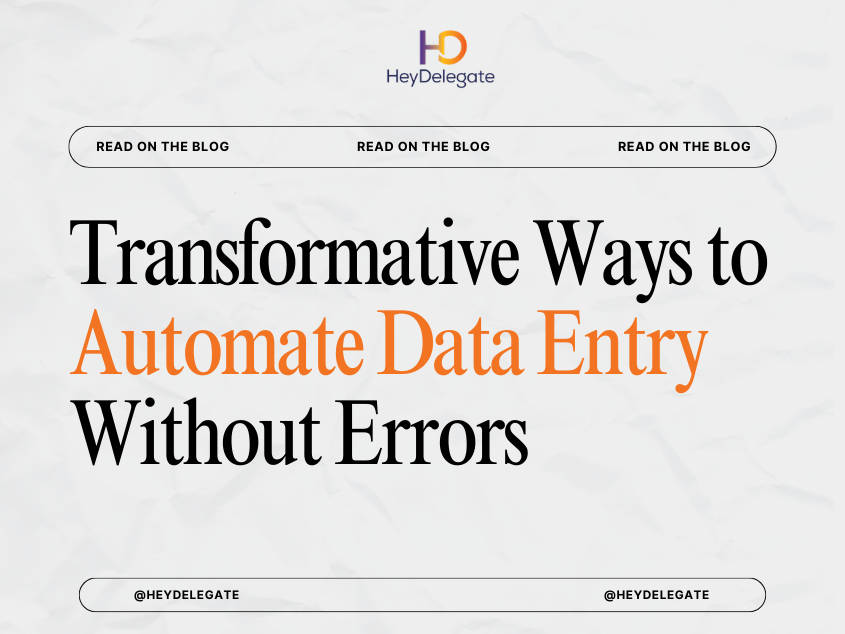In the fast-paced world of entrepreneurship and small business ownership, keeping a close eye on finances is not just a good habit, it’s essential for sustainability and growth. Budget monitoring is one of the most critical yet time-consuming aspects of managing a business. Fortunately, virtual assistants (VAs) are perfectly positioned to take on this responsibility and ensure your business maintains financial health.
In this post, we’ll explore what budget monitoring entails, how virtual assistants can effectively support this function, and why delegating this task can help you stay in control of your finances while focusing on scaling your operations.
What Is Budget Monitoring?
Budget monitoring involves tracking expenses, forecasting income, comparing actual performance with your budgeted goals, and ensuring that spending stays within limits. It requires regular analysis and adjustments to keep your business financially healthy and aligned with strategic objectives.
Many businesses struggle with this due to limited resources or a lack of time, but a well-trained VA can provide consistent and accurate support to streamline these processes.
Key Budget Monitoring Tasks to Delegate to Your VA
1. Expense Tracking and Categorization
- Inputting and classifying expenses in accounting software (e.g., QuickBooks, Xero)
- Organizing receipts and vendor invoices
- Identifying trends and flagging unusual transactions
2. Cash Flow Monitoring
- Updating daily and weekly cash flow spreadsheets
- Notifying you of low cash reserves or unanticipated expenditures
- Preparing weekly reports on cash position
3. Budget vs. Actual Reporting
- Creating monthly or quarterly budget reports
- Comparing actual income and expenses against projections
- Highlighting discrepancies or overspending areas
4. Recurring Subscription Oversight
- Auditing SaaS tools and subscriptions for redundancy
- Cancelling unused services
- Alerting you to upcoming renewals or price changes
5. Vendor Payment Schedules
- Maintaining a calendar of due dates for bills and supplier payments
- Sending reminders or processing payments on time (if authorized)
6. Invoice Tracking and Payment Follow-ups
- Recording outgoing and incoming invoices
- Sending payment reminders to clients
- Following up on overdue payments
7. Financial Data Entry and Reconciliation
- Inputting bank transactions
- Reconciling statements with financial records
- Ensuring accuracy and consistency across tools
8. Creating Financial Dashboards
- Using Google Sheets or reporting tools to create simple dashboards
- Visualizing financial KPIs like monthly burn rate, expense ratios, etc.

How to Train Your VA for Budget Monitoring
1. Use Clear SOPs (Standard Operating Procedures)
Document the step-by-step process for tasks such as updating expense logs, running reports, and reconciling accounts. Include screenshots and video tutorials where possible.
2. Choose the Right Tools
Give your VA access to the tools you use:
- Accounting software: QuickBooks, Xero, Wave
- Expense tracking: Expensify, Zoho Expense
- Communication: Slack, email, project management tools like ClickUp
3. Set Reporting Expectations
Define the reporting cadence (daily, weekly, monthly), and specify what each report should include, summaries, visualizations, alerts, etc.
4. Assign Read-Only Access When Appropriate
If you’re not comfortable giving full financial access, provide read-only access or restrict permissions within tools.
Real-World Example: Freelance Agency Financial Oversight
A growing freelance design agency was struggling to keep its software subscriptions and project budgets under control. The founder hired a VA to help with financial monitoring.
Tasks delegated included:
- Creating a monthly overview of all active SaaS subscriptions
- Highlighting any tools not used in the last 60 days
- Monitoring project spending against allocated budgets
- Notifying the founder when clients delayed payments
Within 6 months, the business reduced software spending by 22%, improved cash flow visibility, and decreased the average client payment cycle by 10 days.
Benefits of Delegating Budget Monitoring to a VA
1. Consistency and Timeliness
Your VA can maintain daily or weekly financial routines, ensuring nothing slips through the cracks.
2. Better Decision Making
With accurate and up-to-date budget reports, you can make faster and more informed decisions.
3. Cost Efficiency
Hiring a VA is significantly more cost-effective than a full-time bookkeeper, especially for routine tasks.
4. More Time for Strategic Work
With routine monitoring delegated, you can focus on revenue-generating activities.
5. Improved Financial Awareness
Frequent updates keep you alert to any emerging financial trends or problems.
Mistakes to Avoid When Delegating Budget Monitoring
1. Not Establishing Clear Permissions
Define what the VA is allowed to see and do. Sensitive tasks should remain under your control unless full trust is established.
2. Lack of Oversight
Even with a reliable VA, you should still review reports and audits regularly.
3. Failing to Document Processes
Lack of SOPs leads to confusion and mistakes. Invest time upfront in documenting the process.
4. Overloading Your VA
Budget monitoring is detail-oriented. Avoid giving too many unrelated tasks to the same VA if it risks focus or quality.

Final Thoughts
Budget monitoring may not be the most glamorous part of running a business, but it’s essential for long-term stability. Delegating this responsibility to a trusted virtual assistant can streamline your operations, uncover cost-saving opportunities, and provide the clarity you need to lead confidently.
A VA trained in financial monitoring can become your go-to partner for fiscal discipline, ensuring that your resources are used wisely and your goals remain financially grounded.
Looking to boost your financial oversight without increasing your workload? Let HeyDelegate connect you with a skilled VA who specializes in budget monitoring and financial task management.




